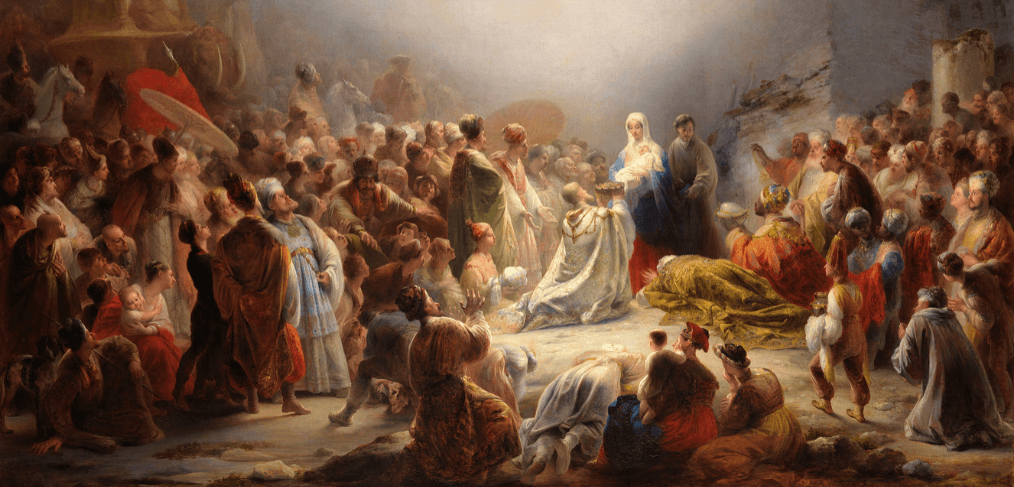Jijo Kandamkulathy, CMF
Claretian Publications, Macau
Mk 1:7-11
EPIPHANY – YEAR B
The gospel on the feast of Epiphany, presents us with the arrival of the magi to adore baby Jesus, the new-born king in Bethlehem. The feast signifies the manifestation of Jesus as the king of the universe. The magi represent the entire non-Jewish world. From this point, what was a private scene of a family comprising a father, a mother and a new-born babe suddenly fills a canvas of universal proportion. Until then, the story of the birth of Jesus, known only to a few shepherds in Bethlehem, emerges into a story of the salvation history of humanity. This little family becomes the heart of humanity and had to be saved from the wrath of human kings, because the new-born boy is announced as the king of the universe.
As often mentioned, the central figures of the feast of epiphany are the magi. They were not kings but magi, or wise men or magicians. They had an expertise in reading the movement of the stars (astronomers). Ordinary folks of the time probably considered their knowledge as magical and revered them as fortune-tellers. There is no biblical foundation either to establish that they were three. A tradition gives them names and matched the number to the number of gifts offered, three: gold, myrrh and frankincense. The gifts presented to Jesus are royal gifts, gifts worthy for a king. The magi were in search of a new-born king. Through them, the messiah of Israel is recognized as the king of the universe. We note that the magi’s enquiry to Herod was about the new-born king, establishing the universal kingship of Christ.
What is sure is that these wise men learned about the birth of Christ and came to visit the crib. That sounds like the pious practice of many Christians to make a visit to the cribs in different places. Only that in our times, some people visiting the nativity scene go back appreciating the craftsmanship of the crib, the waterfalls and lightings all the while, the little babe might be calling out in a feeble voice: “It is my birthday, say hello to me please and give me gifts!” Sometimes, visitors return from the nativity scene without actually connecting to the new-born babe. Sometimes, a whole Christmas is celebrated connecting only to Santa Claus and a Christmas tree without ever bringing the meditation on the birth of Christ, the saviour.
The magi arrived first to the palace of Herod and enquired about the special baby. Being familiar with the messianic prophesies, Herod was quick enough to find, with the help of his wise men, where the child would be born. But in his evil mind, a plan was being hatched to annihilate the baby. The fear in Herod already gives an idea that this child born in a remote shepherd village is going to influence Israel and the destiny of Herod himself.
The story in Bethlehem fulfils the Old Testament prophesy about Bethlehem, the hometown of David from the tribe of Judah, the acclaimed king of Israel. Jesus is established as born from the Davidic dynasty. The new king is also born among the shepherds, a coincidence that David was a shepherd is significantly brought to this epiphany scene. The Old Testament has often pictured the messiah as a shepherd.
If Christmas was a moment of joy for heaven and the holy family, Epiphany is a moment of joy for the earth rejoicing at the birth of the prince of the universe and every Christian rejoices to belong to his kingdom where the king “is my shepherd, and there is nothing I shall want,” in his kingdom.


 Follow
Follow


